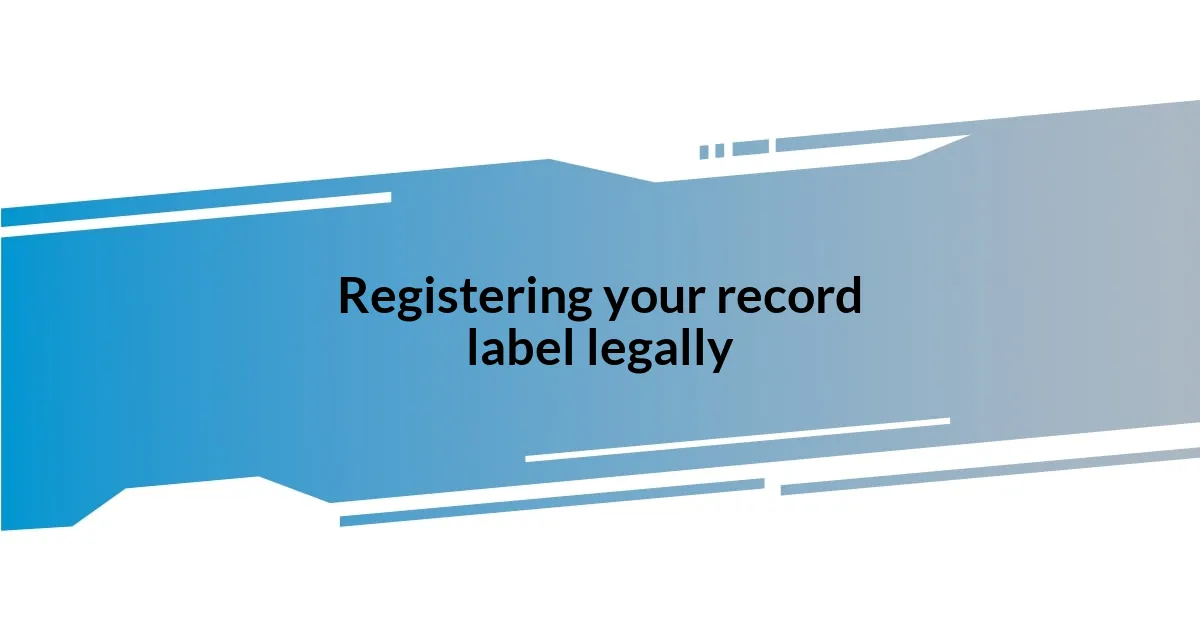Key takeaways:
- Understanding the music industry’s fundamentals involves grasping the roles of record labels and the digital landscape, emphasizing artist engagement over sales.
- Choosing the right business structure (e.g., LLC) for a record label is critical for protecting personal assets and managing taxes.
- Legal documentation, such as trademarking the label name, is essential for establishing a strong brand identity and legitimacy in the industry.

Understanding the music industry fundamentals
Understanding the music industry can feel overwhelming, but breaking it down helps. I remember my early days, frustrated by countless terms like “licensing” and “distribution.” Have you ever felt lost in jargon? I certainly did, until I learned that these aspects ultimately help artists get their music heard and paid for.
One fundamental aspect is knowing the role of record labels. They can be a powerful ally, providing artists with resources, marketing, and distribution. But I found it crucial to understand that not all labels are the same; some focus heavily on profit, while others genuinely nurture talent. Reflecting on my journey, I realized the right partnership can shape an artist’s career.
Finally, it’s essential to grasp the digital landscape of today’s music industry. Streaming platforms have revolutionized how we distribute and consume music. It was a game-changer for me when I realized that promoting music is now more about engagement than mere sales. Are you leveraging social media effectively? Trust me, I’ve seen firsthand how building a community around your art can lead to success.

Registering your record label legally
When I took the plunge to register my record label, I found it essential to choose the right business structure. Did you know that the type of entity you select—be it an LLC, partnership, or corporation—can significantly impact your taxes and liability? I opted for a Limited Liability Company (LLC) because it offered me flexibility while also protecting my personal assets.
The next step was ensuring all legal documents were in order. I spent hours poring over registration forms and learning about trademarking my label name. I’m not going to lie; it felt tedious at times, but I couldn’t shake the thought that this was my foundation. Establishing a unique brand identity felt like arming myself with a protective shield against potential copycats.
As I submitted my paperwork, there was a palpable sense of accomplishment. It dawned on me—was this the moment I officially became a label owner? This feeling of legitimacy was exhilarating, and it reinforced my belief that every artist deserves a solid legal backing. Getting it right from the beginning was crucial; it set the tone for everything that followed in my entrepreneurial journey.